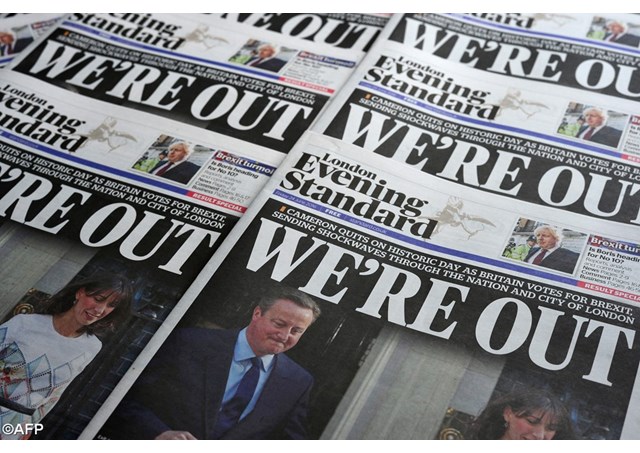
Brexit: Britain a "divided kingdom"

(Vatican Radio) The British people have decided to exit the European Union, after voting in a historic referendum that saw 52% of the population vote to leave.
British Prime Minister David Cameron announced he had decided to step down, saying the country needs “fresh leadership” following the results of the referendum.
Vatican Radio’s Georgia Gogarty spoke to Dr. Brian Klaas, a Fellow in Comparative Politics at The London School of Economics, to gage the reaction of the British public, and where the country goes from here.
Dr Klaas says “we woke up this morning in the United Kingdom as a divided kingdom”, and that this is the biggest thing to take away from the referendum. He said that although ultimately Britain voted to leave the EU 48% of the population are “disillusioned with the process and disillusioned with the outcome”. The overall mentality is one of both “uncertainty and risk but also one of division that needs to be healed if the country is going to move forward”.
When asked about what the next fundamental steps should be Klaas explained that the Prime Minister has outlined what he plans to do next and that a new conservative party leader is needed to “steer Britain’s ship through Brexit”. Klaas stressed that the country needs someone who will “rise above the fray otherwise the risks of Brexit will be substantial”.
A key issue that has arisen from the outcome is that 75% of 18 to 25 year olds voted to remain in the EU in contrast to the older generation “who overwhelmingly supported Brexit”. Klaas explained that the referendum has “divided families in addition to dividing the government”. Young people are in despair over the outcome they will have to live with for decades, much longer than the parents “who have ended up ultimately sowing the seeds of Brexit”.
Although the generational divide has been discussed at length throughout the Brexit debate, Klaas pointed out that there is also a huge class divide. He explained that Brexit was “a working class revolt against the status quo”, however he believes that “poorer people are the ones who will be most affected negatively by Brexit” despite the fact that they are the ones who voted for it.
Looking at the bigger picture Klaas said that there is not only volatility in Europe but within the UK itself. There is a risk of Scotland asking for a second referendum on independence and Northern Ireland commissioning a poll about reuniting with the Republic of Ireland.
Klaas said that Britain had placed itself in a Catch 22 situation. Much of the referendum debate was about curbing migration and immigration, yet he explained that we “can’t curb migration and have economic robustness”. This, he said, will result in disappointment for Britons who voted to leave.
Talking about the global effects of Brexit, Klaas drew parallels with other trends of populism around the globe, drawing comparisons between Brexit and the rise of Donald Trump in the United States. The world is experiencing “a great moment of fear and uncertainty” particularly with regard to economic costs, and people are looking to “beaurocratic governments in Brussels” as culprits.
He believes the response to all of this has been to “turn inward”, however Klaas stressed that it “won’t be productive” and that problems can be dealt with much more effectively through cooperation as opposed to removing nations from international corporations like the EU.
According to Klaas, we are going to see more isolationism with this “blend of muscular right wing populism” that conjured up the EU referendum in the first place. Brexit, he concludes, is just the beginning.
| All the contents on this site are copyrighted ©. |


